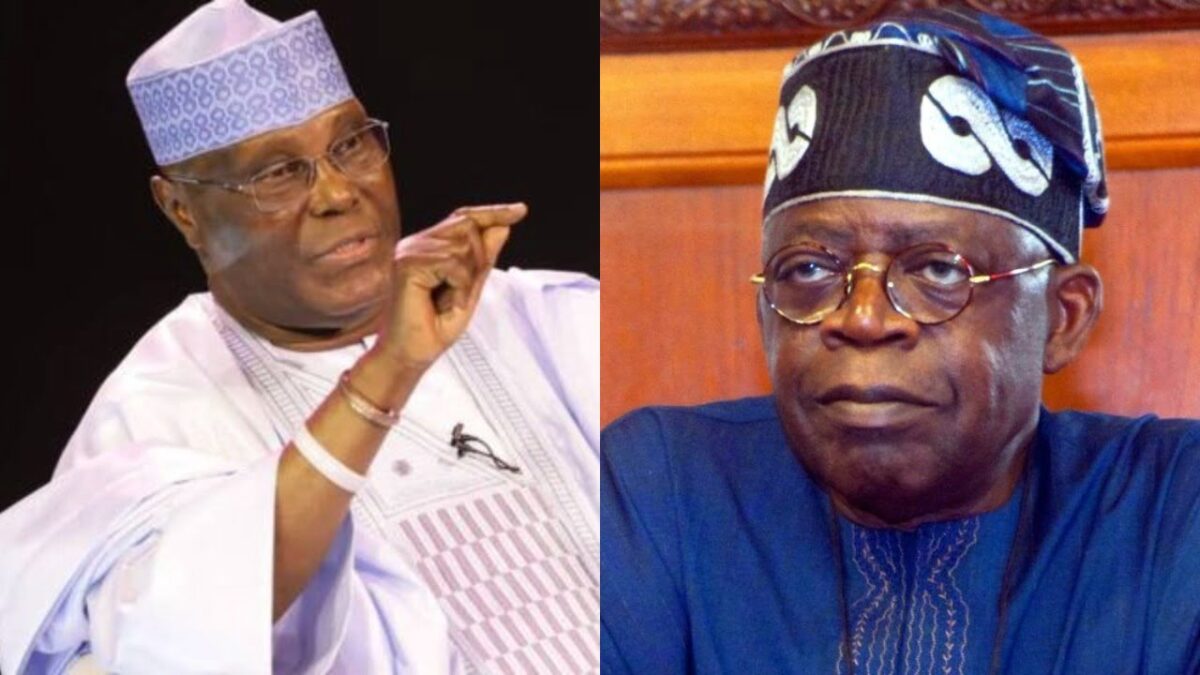Tinubu and Shettima called it frivolous, emphasizing that the court is not a venue for public entertainment but rather a venue for serious judicial processes.
By Omotayo Olutekunbi
In a recent development, President-elect Bola Tinubu and Vice President-elect Kashim Shettima have petitioned the Presidential Election Petition Court to deny Atiku Abubakar and the Peoples Democratic Party (PDP)’s request for a live broadcast of the proceedings.
According to emerging reports, the respondents have contended that the applicants’ requested remedy is outside the scope of the court’s jurisdiction.
The respondents, represented by a legal team headed by Chief Wole Olanipekun, expressed their admiration for the petitioners while calling the motion a misuse of the court’s procedures. They slammed the motion as frivolous, emphasizing that the court is not a venue for public entertainment but rather a venue for serious judicial processes.
The respondents questioned the motivation for submitting an application that seeks to divert the court’s attention and squander important time. They contended in their counter-affidavit that the application touches on court policy development issues outside the competence of the Presidential Election Petition Court’s existing composition.
They further said that the application pertains to powers and authority reserved only for the President of the Court of Appeal, which the court cannot examine now.
Respondents requested the court to reject the application in the interest of justice, arguing that it merely serves to waste valuable judicial time and is irrelevant to the original petition.
In their written address, the respondents contested the applicants’ reference to the authorization of virtual procedures during the COVID-19 epidemic. They claimed that Atiku and the PDP ignored customary orders granted by the separate courts to assist such processes.
The respondents further criticized the application for seeking that the court imposes an order that it cannot oversee, claiming that the court does not issue orders in vain or that are unenforceable.
Furthermore, the respondents thought the application was academic, unneeded, time-consuming, and unexpected, particularly given that the petitioners should seek a quick trial.
They said that invoking Section 36(3) of the Constitution, which protects open procedures, refers to a public location with the court sitting in open session rather than behind closed doors or in camera.
Respondents noted that the application fails to clarify or name the public on whose behalf it is brought, even though class actions designate the persons represented by the plaintiffs or petitioners in the original filing.
Respondents emphasized preserving the court as a serious, disciplined, and respectable institution. They flatly denied that it should be used for public entertainment and underlined that the request misuses the court’s proceedings.
Related posts
Reviews
Follow Our Activities On Facebook
12 hours ago
12 hours ago
14 hours ago
16 hours ago
19 hours ago
SUBSCRIBE
[mc4wp_form id=”2012″]
Top Reads!
#BigBrotherNaija “Level Up” Week 6
Though last Sunday Sunday was meant to be a “no-eviction” day, it came as a shocker when fake housemate, Modella…
Dating in 2022; Situationships Are Not For The Fainthearted
Situationships are defined as that space between a defined relationship and something other than a friendship. It is a romantic…
20 Questions With Dinta Media’s Visual Storyteller, Chimeremogo Nwoke
Dinta Media is not really just a media production brand but we like to see ourselves as a hub for…
How Are Nigeria’s Small Businesses Coping?
The current rising rate of inflation and other burdens against the Nigerian economy speaks to the realities of the times.
Thrifting Is All The Rave Now, Here’s Why
By Amy Adindu The affordable clothing movement has gained global attention and acceptance as we’re all trying to look like…
#BigBrotherNaija “Level Up” Week 2
Week 2 of the highly watched Nigerian TV show kicked off with an early plot twist. On Sunday, Big Brother…
#BlueTunes: Burna Boy, Omah Lay Top Album Picks For July
July was a promising month for music lovers; from Lizzo’s album titled Special and Imagine Dragons’ Mercury, (Acts 1 &…
#BlueTunes Album Picks For June
Gbagada Express – Boj Bolaji Odojukan, popularly known as BOJ, was raised both in England and Nigeria. He shot to…
“A Creative’s Dream” with Jeff Chinonso
On the 26th of June 2022, Jeff Chinonso hosted his first solo art exhibition. The Augmented Reality exhibition themed “A…
Nigerian API-based company Thepeer raises $2.1 million
Tech infrastructure startup Thepeer has raised a $2.1 million seed round according to a report from TechCabal. Thepeer, a Nigerian…
Dika Ofoma, Ugochukwu Onuoha take on grief in Debut Film “The Way Things Happen”
The twenty-minute film focuses on the loss of a loved one, and how grief changes a person.
Nigerian Startups might just be Crippled by a Recently Leaked bill
Over the years there has been talks of amendment on the 2007 Act of the National Information & Technology Agency (NITDA).
Why We Love Kelechi Amadi Obi
The definition of talent is Kelechi Amadi’s iconic story. Imagine a person who studies law in school, gets called to Bar, and leaves it all for something different and unrelated…Painting!

















